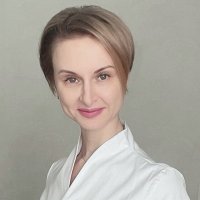
Gynecologist-endocrinologist Evgenia Nazimova said that there are two groups of contraindications for the use of menopausal hormone therapy (MHT): absolute and relative.
Menopausal hormone therapy (MHT) is considered an effective measure to preserve the health of women of mature age. It is known that menopause is accompanied by irreversible hormonal changes – a decrease in the level of female sex hormones (estradiol) and an increase in the level of hormones of the anterior pituitary gland (luteinizing hormone, LH, and follicle-stimulating hormone, FSH).
⠀
Absolute contraindications to MHT :
Cancer of the breast, uterus, endometrium, ovaries, both diagnosed and suspected. Note – only if the hormonal dependence of the tumor is established.
Thus, most breast cancer tumors are hormone-dependent, that is, estrogens and progesterone have a stimulating effect on them. Without these hormones, such tumors cannot grow, they decrease in size and gradually die.
⠀
Progesterone-dependent formations. For example, meningioma.
⠀
- Arterial and venous thrombosis. ⠀
- Porphyria (genetic blood disease).
- Pregnancy and lactation.
- Malignant tumors of the liver.
⠀
Relative contraindications of MHT:
Hereditary predisposition to thrombosis . Here you need to exclude other risk factors that can also cause thrombosis (smoking, prolonged immobilization, for example, hospitalization, severe obesity, vascular disease).
⠀
- Acute or chronic liver disease (treat, relieve acute inflammation)
- Intolerance to lactose, galactose.
- Hypersensitivity to the components of MHT preparations.
- Endometrial hyperplasia (treat)
- Bleeding from the genital tract (identify the cause, treat).
- A pronounced increase in the level of triglycerides in the blood (requires additional examination).
- ⠀
— In most cases, with relative contraindications, we can choose MHT for a woman. It's just that if she has health problems, then a much more thorough and detailed examination will be required, possibly using genetic testing, in order to select not only effective, but also safe therapy. However, these time and financial investments pay off by allowing a woman to lead a better, healthier and more fulfilling life in the future,” the doctor noted.
Non-hormonal therapy: myths and truth about phytoestrogens Evgenia Nazimova told what the Mirena intrauterine hormonal system (IUD) is. It is often referred to simply as a spiral.
3 categories of women who should choose phytoestrogens
Mirena is a plastic device with a reservoir for the hormone. Its active substance is the hormone levonorgestrel. Released into the uterine cavity, it helps thicken the cervical mucus and thin the inner layer of the uterine wall (endometrium), preventing sperm from entering the uterine cavity and thereby preventing the fertilization of the egg. in the morning.
Important! Information provided for reference purposes. Ask a specialist about contraindications and side effects and under no circumstances self-medicate. Seek medical attention at the first sign of illness.
 Evgenia Nazimova Medicine Gynecologist-endocrinologist
Evgenia Nazimova Medicine Gynecologist-endocrinologist
